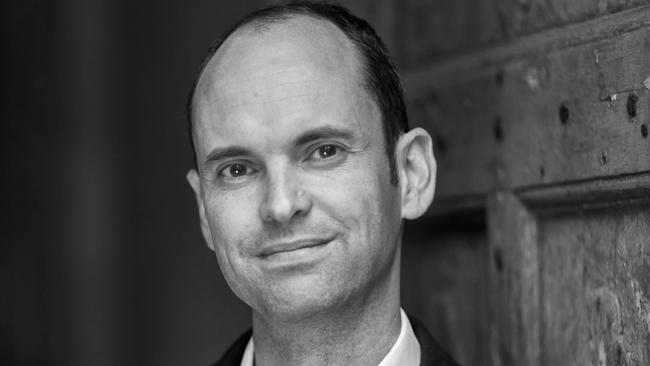Coronavirus: Humanity has power to rise to challenge of new threats

In recent centuries, as humanity has learned more and more about the science of disease, we have confronted the possibility of pandemics so severe as to destroy human civilisation or even humanity itself.
Indeed, one of the first books to discuss the possibility of human extinction was Mary Shelley’s The Last Man, in 1826, which imagined a world ravaged by a mysterious plague. Risks of this scale — those that would destroy not only our present but also our entire future — are known as existential risks. We can be confident that the novel coronavirus does not pose an existential risk. If our attempts to hold it at bay do not succeed, it may kill millions of people across the world, but it won’t kill billions. It won’t kill humanity. It won’t collapse civilisation.
Still, it is clear we are living through a once-in-a-century event that will have profound, lasting effects on the world. It will push us towards online communication and education; perhaps online voting, too, in parliaments and electorates where it is too dangerous to come together in person. It is too early to know whether its push towards international co-operation will triumph over its impetus towards nationalistic isolation; and whether it will lead to renewed respect for experts or a rise in populist resentment.
If we zoom out far enough and take the long view, perhaps the greatest effect on our future would be if it wakes us up to our vulnerabilities, allowing us to steer a path clear of future pandemics that could end our entire story.
What kinds of pandemics could pose an existential risk? When it comes to naturally arising pandemics such as the novel coronavirus, the historical record can provide some comfort. Humanity has endured pandemics before and survived with its potential intact. The 1918 flu killed about 3 per cent of the world’s people yet had remarkably little impact on the course of history. The Black Death killed a third of Europeans yet civilisation remained intact.
For most natural existential risks, we could also draw comfort from the fossil record: if Homo sapiens survived 2000 centuries of such a risk, it must be very low. But this argument is sound only for risks that have been constant, or decreasing, across time — and that may not be true here.
Our population is a thousand times greater than across most of human history, creating many more opportunities for new human diseases. Our farming practices have created vast numbers of animals living in unhealthy conditions close to humans. We live more densely; we travel further and more frequently. Together, these effects suggest we may expect more new pandemics, for them to spread more quickly, and to reach a higher percentage of the world’s people.
But we also have changed for the better. We are healthier, we have improved sanitation and hygiene, modern medicine and a scientific understanding of disease. Disease travels more quickly, but so does the news about how it has ravaged other nations, what worked to control it and what didn’t. So it is hard to say whether the existential risk from naturally arising pandemics has risen or fallen, and thus it is hard to know how much comfort we can take from our species’ long past.
When it comes to pandemics where humanity plays a direct role — where we deliberately use, create or improve dangerous pathogens — the past offers almost no reassurance.
Humanity has a long and dark history of using disease as a weapon. There are records dating back to 1320BC describing a war in Asia Minor, where infected sheep were driven across the border to spread tularaemia. And there are credible claims that the Black Death entered Europe through an early act of biowarfare, when the besieging Mongol army catapulted plague-ridden corpses into the city of Caffa.
In the 20th century, several countries embarked on large bioweapons programs. The Soviet Union in particular built up vast stockpiles, reportedly including more than 20 tonnes of smallpox and of plague.
Yet it is not 20th-century bioweaponry that should alarm us, or even that of today, but the next 100 years of improvements. A hundred years ago, we had only just discovered viruses and were yet to discover DNA. Now we can design the DNA of viruses and resurrect historic viruses from their genetic sequences. Where will we be 100 years from now?
These trends towards increasing power have brought us to a singular time in human history. Through its rapid technological progress, humanity has attained the power to destroy itself before achieving the wisdom to ensure it won’t. And because these anthropogenic existential risks, from engineered pandemics, climate change and nuclear warfare, outstrip all natural risks combined, they have created a uniquely dangerous time — a time I have called the Precipice.
But this is not reason to despair. Whether humanity navigates these challenges, learning from warning shots such as the current pandemic and taking decisive action to safeguard our future, or whether we succumb to these risks and end our story here, is ultimately up to us.
For the greatest threats are not from external forces but from within — since much of the risk is caused by human action, so human action can end it. This will involve unique challenges — new forms of international co-operation; new protective technologies; new moral outlooks — but it is within our power. And I believe we are up to the task.
Toby Ord is a London-based Australian philosopher. His new book, The Precipice (Bloomsbury), is out now.



The threat of disease has been with us throughout human history. Though we didn’t understand its causes, the viruses and bacteria were there evolving alongside us (and inside us), adapting to our defences. Sometimes, as with the new coronavirus, they crossed over into humanity from the other species with which we share the globe.